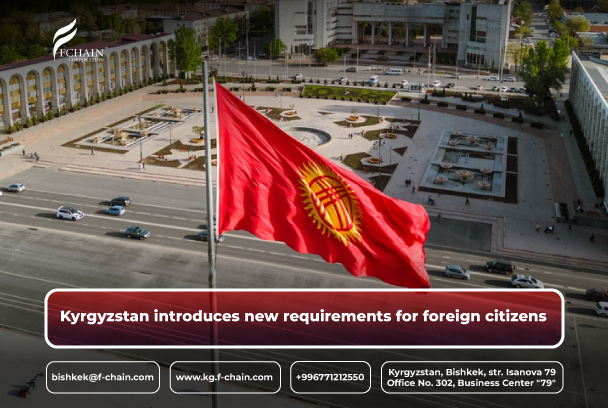- Home
- The New Tax Code in the Kyrgyzstan Republic
The New Tax Code in the Kyrgyzstan Republic
Sadyr Japarov, President of the Kyrgyzstan Republic signed the new Tax Code. It was adopted by the Jokorku Kenesh (Parliament) of the Republic on December 22, 2021.
The purpose of the Tax Code is optimization of the tax administration, ensuring the stability of the tax system, further improvement of digitization of tax procedures, as was commented in the press service of the President.The new Code is reported to give equal conditions and opportunity for the establishment of entrepreneurial activity and reduction of shadow economy.
Two main approaches were provided by the New Code:
According to the Code e-commerce activity will be imposed tax in the amount of 2 % defined for trading in a non-cash form. The services of foreign companies are to be charged VAT (such as, GOOGLE and so on).
1 % EIT rate is set to equalize the conditions for doing business and supporting local producers.
The Code provides benefits on fixed term basis through evaluating performance. The list of tax incentives subject to assessment, as well as the procedure and types of evaluation of effectiveness of tax incentives will be approved by the Cabinet of Ministers.
Besides, tax incentives are provided for:
Under the prescribed rule the subject renting out a space for business activity, including trading places in markets (mini-markets) and in shopping centers and houses is obliged to include into the lease agreement the requirement on tenant’s cash register. Failure to comply with the mentioned requirement causes termination of such agreement in accordance with unilateral provisions.
At the same time, return of some part of the amount indicated in cash receipts for purchased goods, work and services is provided as well (cash–back).The amount is subject to return to the natural person’s domestic bank account. The administration of the head of state stated the norm to strengthen control over the use of cash registers by the civil society. And it will have positive impact on the creation of equal opportunities for competition and increase transparency of business. Encouragement of payment debts for tax, penalties and sanctions are written off in the amount of 50% upon full payment of the principal debt and remaining 50% of the penalties and sanctions.
The simplified VAT recovery procedure is to be introduced for exporting enterprises. The procedure is applied to all enterprises exporting at least half of the capacity within a period of six months as a whole. So, according to the results of desk audit the exporter can receive VAT reimbursement within less than 30 working days.
Remote tax inspections are to be conducted under the Code as well. Exemption from cameral and field tax audits, reduction in the number of primary documents, exchange of information in real time are provided by the present mechanism.
The Tax Code entered into force on January 1, 2009 is declared to be no longer in force.
- Author: Gunel Musa
Public Relations Manager
Latest news



Consultation
Contact us or find nearest office

